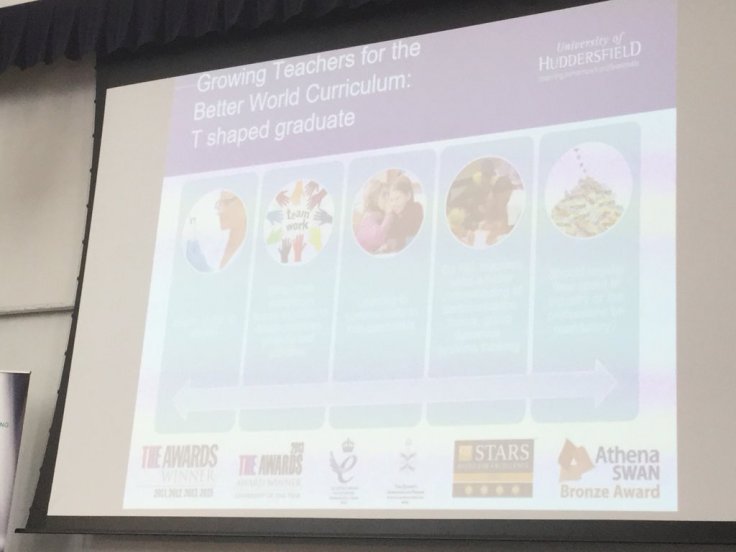
I attended the Advance HE (formerly Higher Education Academy) teaching and learning conference, in Birmingham, for the first time this year Advance HE TL Conference 2018. Previous to this my experience of conferences was of academic history ones.
Academics sometimes get a little bit too immersed in their own institutions. It seemed like a good idea to meet people in other institutions and discuss teaching, rather than research.

The theme for this year’s conference was ‘Teaching in the Spotlight: Learning from Global Communities’. Discussions were meaningful, research driven and focused on the specific challenges and opportunities these developments offer to the HE sector.
I was particularly impressed with the overall concerns of the delegates, which came through in almost all the sessions I attended, on student inclusion, welfare and well-being, progression and achievement.

The conference is split into three days according to academic discipline. As a historian I attended day one for Arts and Humanities.
Keynote: Professor Christine Jarvis, PVC for Teaching and Learning, Huddersfield University: ‘Growing Global Graduates: Teaching for a Better World’
The day kicked off with a great keynote. Christine Jarvis’ paper, entitled ‘Growing Global Graduates: Teaching for a Better World’ focused on how HE needs to understand the complexities of globalisation and seek to develop graduates that can survive, prosper and contribute to that world.
HE needs to produce ‘T-Shaped Graduates’ (yes I was a little sceptical at first).

This graduate should feel part of the global community – ‘personally inclusive’. As HE practitioners we need to make emotional and cognitive links with the life experiences of our students, and show how they are relevant to the global community – we should make the subject relevant to their experiences and provide a lens through which they can review and revision the world around them.
They should also be a ‘global citizen’, so contribute actively and positively to that world. They need to develop inter-cultural empathy and see themselves as part of wider and diverse communities, and value that.
One question focused on the ‘state of the world’ – how are our graduates to do this in the context of growing levels of nationalism and the rise of the ‘far right’? By critically analysing, challenging and questioning, was the answer – the very stuff we teach.
Session 1: Neil Withnell, Dr Emma Gillaspy and Dr Jaqueline Leigh (University of Salford) with Hugh Mannerings (Advance HE): ‘Retention and Employability: Not to Be Separated
This was a workshop designed to help us think about the challenges a range of students face in their studies, how we might help them through those challenges from pre-entry/ induction/ transition to graduation and employability.
We were encouraged to apply our specific institutional contexts to this but the net result was that induction is the most vital part of a student’s journey. If that goes well students seem to be better placed to deal with problems later down the line.
We discussed whether we should focus as much as we do on ‘integration’. Shouldn’t we accept different needs and interests and shape the curriculum around those?

Social networks and activities were also seen as key to this, in breaking down and challenging the ‘imposter syndrome’ many students suffer from.
My big takeaway from this session was the idea of a Student Progression Assistant (Salford use a recent graduate for this). These operate at Faculty level and track dashboard data on attendance, submission, attainment etc. Potential problems can be identified early and dealt with by PATs (but without the time cost of PATS doing this themselves). The cost of the SPA is offset by the avoidance of just one student lost to the university.
Session 2: Dr Roger Harrison & Dr Sarah Willis (University of Manchester): ‘Peer Support in Online Learning’
Next a presentation on an innovative approaches to student support – through recently graduated peers. Roger and Sarah explained their new approach in the Masters in Public Health.
Students across the globe study this online course. To avoid problems of isolation and add another layer of support recent alumni were recruited as mentors to provide answers to questions the students felt were just too ‘simple’ and ’embarassing’ to ask their tutors. This was not ‘time off’ for the tutors but a supplement to what the students would normally get.

They used a networking app, Slack to enable the conversations, putting the students into small groups but enabling them to ‘peep’ into other groups if they wanted to. The key thing was that tutors would not ‘lurk’ in the groups, the students could be confident that they were talking only to the mentors.
The benefits of this for both mentors and mentees are transferable higher level skills, the development of belonging, a deeper understanding of learning, social and cultural awareness, better grades and better retention rates.
Session 3: Annie McCarthy (University of South Wales), Pretti Jaiswal (University of Bahrain), Rachel Younger (Edinburgh Napier University): ‘Collaborative and Peer to Peer Learning’
Finally three separate papers all on collaboration and peer to peer learning using cross-platform media.
All three speakers focused on experiential learning, that students bring their experiences into the ‘classroom’ as a basis for their studies.
The distinction between collaborative learning and collaborative assessments was discussed – one need not lead to the other. The challenges facing this type of approach were also mooted. Do students want to work collaboratively and do they see a benefit? Is there a strong pedagogical case for collaboration? How can online platforms enhance collaborative learning?

We were treated to a live link to three of Annie McCarthy’s students discussing their experiential learning and the benefits accruing to them through this process.
Conclusion
So lots of food for thought and a very enjoyable day. The Twitter feed will give you a wider perspective on the conference: Advance HE Conference Twitter Feed
If anyone is thinking of going to next year’s conference I would highly recommend it.
